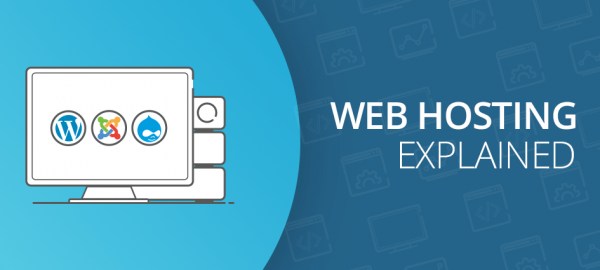In building your online presence, one of the key things to decide is who will ‘host’ your website. This essentially means who will store the files and provide the software that enables your website to function. If you are employing an external web-developer to help you with creating your website, it is generally thought wise not to entrust them with finding you a web hosting service.
Choosing your own hosting provider means that there is a degree of separation between the website itself (and its development) and the hosting aspect. This can be an important way of protecting yourself and your site against any conflicts/disagreements between the website developer and yourself. Imagine if you fall out with the developer and you have asked them to deal with the hosting as well? Potentially they could take your site down and cause untold damage to your business!
So now that we have established that you should source the web-hosting service yourself, what are the key things to look for in a potential provider?
1. Pricing
One of the most important considerations for all businesses is pricing. There are many service providers that provide similar hosting services at a range of prices. The more expensive options tend to be feature-heavy and able to deal with a lot of concurrent traffic. However, don’t pay for what you don’t need!
2. Technical support
The level of tech support you need is dependent upon your own knowledge. Most of the major providers will offer 24/7 support which is vital for instances where your site may go offline and you need a resolution immediately. Also, check if the tech support number is free or chargeable.
3. Hardware
This is not that much of an issue because hosting is delivered via a third-party provider’s infrastructure. You just need to make sure that your web servers have sufficient memory, storage, etc. to be able to deal with what you need to do.
4. Email features
This is something else you will need to consider. Email is still a significant part of your web presence so if you are choosing to use an email service that is run by the hosting provider, you will want to ensure that it has features such as spam control, forwarding, aliases, auto-responders and so forth.
5. Control panel
This is essentially the user interface that enables you to control/administer your website via the hosting provider. When it comes to control panels, the simpler the better. Some of the most commonly used control panel services include cPanel and Plesk.
6. Shared or private hosting
The option you choose really depends on what kind of website you are running. If you have a fairly simple site with low traffic, you will probably be absolutely fine to opt for a shared hosting service. This essentially means that you are sharing resources, including a server, with a number of other sites. This is cheaper and usually very straightforward.
If your website is more complex, or you are expecting significant volumes of website traffic, you may be better off opting for private hosting. This is a more expensive option but gives you more control and your own dedicated resources.
7. Scalability
If your business is likely to grow significantly/at pace, you need your web presence to be able to grow with it. So make sure that your service provider is clear about how easy it is to scale-up or down. Some services will automatically upgrade your system if you reach certain milestones in-terms of capacity, bandwidth or traffic.
8. Backup
You need to make sure that your hosting provider offers a solid backup feature/policy. This protects against events such as file deletion or even damage to equipment. Ask the provider about their disaster recovery plan and about how often they backup your files (and to where).
9. Domain parking service
This is a great feature to have. If you have bought a lot of domain names (for example, misspellings or shortened versions of your main domain), parking services mean you can have all these on one control panel. This helps with brand management and means that you can monitor how many people are accidentally typing in these other domains. You can of course set up auto-forwarding on these domains so you don’t lose custom.
10. Ease of switching provider/leaving
Despite being last on the list, this is an important one. You may at some point want to move to a different provider – and you will want to be able to do so fairly easily. Make sure that you read all the small print in your contract and ensure that you can switch provider if you need to – without financial penalties or endless hassle.
View our Web Hosting packages, or give us a call on 01 5255768 for some advice form our friendly team.
